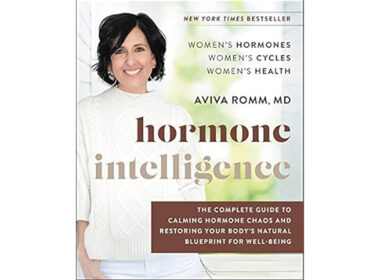In researching the phenomenon of vasectomy regret, I came across a Reddit thread that gave me particular pause. “She said that sex frequency would increase if I had a vasectomy. I had a vasectomy. No change. Can anyone relate?” was the name of the thread, and what ensued was a litany of comments from other Redditors lamenting the fact that a vasectomy did not rectify what they called a “DeadBedroom” —essentially, a relationship lacking in physical intimacy. Worse, the experience made them feel resentful, and many of them were contemplating leaving their relationships altogether.
For many of the Redditors on this thread, it appeared that a vasectomy was something of a last-ditch effort to try to get their female partners re-interested in sex. For many of these couples, sex was very infrequent, and when it did happen, the men said it simply felt like “duty sex.”
“DeadBedroom:” Were pregnancy fears really the issue?
According to these men, their wives or partners said that the fear of getting pregnant was what kept them from wanting to be intimate—especially for those who were older, or certain they were done having children. Many of the women had been on birth control and no longer wanted to deal with the side effects, or were currently (and unhappily) on birth control, and seeking other options for family planning. Therefore, a vasectomy was proposed, with some men noting how “encouraging” their partners were of the procedure—to the point of making some of them feel pressured to get one.
But promises of more frequent sex (and especially sex without condoms) on the other side of the vasectomy made it seem worth it to these Redditors, so they went through with it. Imagine their frustration when nothing in their sex lives changed after the procedure—and, instead, (for at least some of them) they found themselves facing a future of chronic pain and lowered libido as a result. Unsurprisingly, many of these men were feeling extremely resentful, and beginning to consider separating from or divorcing their partners.
On the flip side, and less commonly, the thread also featured a few women who wanted more frequent sex in their relationships. These women said that it was their husbands or male partners who suggested a vasectomy, claiming it would help them feel less fearful of getting their female partners pregnant—and therefore “in the mood” more often. After agreeing to the procedure with the hopes of more “worry free sex” in the cards, these female Redditors now found themselves frustrated that their infrequent sex lives had not changed post-vasectomy.
A vasectomy isn’t a substitute for emotional intimacy
The moral of the story seems to be that issues in a relationship—and especially issues with physical intimacy—might not go away simply because someone gets a vasectomy. And while the experiences of the Redditors on this thread don’t encompass all of the experiences of those who get vasectomies, they illustrate some important considerations for anyone thinking about having the procedure done. Namely, that a vasectomy can compound unresolved relationship issues (especially if it leads to chronic pain or complications), which can in turn lead to resentment for having been pressured to have the procedure done in the first place.
Of course, I don’t know the background stories of any of these anonymous commenters on Reddit—and some of them claim to have tried couples’ therapy before resorting to a vasectomy—but if I could have offered them any piece of advice, it would have been: Sterilization is a poor substitute for the communication and emotional empathy that makes for a satisfying love life.
Birth control and libido—or lack thereof
And while this doesn’t excuse pressuring someone into a permanent, sterilizing procedure, the libido-dampening effects and other physical and mental side effects experienced by many women while on birth control are real. If a woman is telling you that her birth control is making her desire sex less, she’s in good company: many women report that birth control tanks their libidos. After all, hormonal birth control use lowers a woman’s testosterone (which is responsible for sex drive in women, too) [2], is linked to increased rates of depression and anxiety (which are libido dampeners, as are the drugs that are frequently prescribed to combat these issues) [3], it has been shown to shrink a woman’s clitoris (otherwise known as the “female pleasure center”) [4], and to change the vascularization of the vulvar tissue, thinning the labia and vaginal introitus [5]—which can lead to increased pain with sex.
So, if someone is looking to revive a dull love life, taking away the impediments to sexual enjoyment seems like a good start. And the good news is that you can take birth control out of the equation without having to plan for a baby—or a surgery. Methods of fertility awareness require no libido-dampening hormones or uncomfortable devices, and they can be just as effective as the Pill or any other form of contraception. What’s more, fertility awareness methods have actually been shown to improve marital intimacy and increase sexual satisfaction.
In short, you can reignite your love life—but do yourself a favor, and do it without the knife.
References
[1] Sinha V, Ramasamy R. Post-vasectomy pain syndrome: diagnosis, management and treatment options. Transl Androl Urol. 2017;6(Suppl 1):S44-S47. doi:10.21037/tau.2017.05.33 [2] Zimmerman Y, Eijkemans MJ, Coelingh Bennink HJ, Blankenstein MA, Fauser BC. The effect of combined oral contraception on testosterone levels in healthy women: a systematic review and meta-analysis. Hum Reprod Update. 2014 Jan-Feb;20(1):76-105. doi: 10.1093/humupd/dmt038. Epub 2013 Sep 29. PMID: 24082040; PMCID: PMC3845679. [3] Skovlund CW, Mørch LS, Kessing LV, Lidegaard Ø. Association of Hormonal Contraception With Depression. JAMA Psychiatry. 2016 Nov 1;73(11):1154-1162. doi: 10.1001/jamapsychiatry.2016.2387. Erratum in: JAMA Psychiatry. 2017 Jul 1;74(7):764. PMID: 27680324. [4] Battaglia C, Morotti E, Persico N, Battaglia B, Busacchi P, Casadio P, Paradisi R, Venturoli S. Clitoral vascularization and sexual behavior in young patients treated with drospirenone-ethinyl estradiol or contraceptive vaginal ring: a prospective, randomized, pilot study. J Sex Med. 2014 Feb;11(2):471-80. doi: 10.1111/jsm.12392. Epub 2013 Dec 2. PMID: 24299553. [5] Battaglia, C., Battaglia, B., Mancini, F., Busacchi, P., Paganotto, M.C., Morotti, E. and Venturoli, S. (2012), Sexual Behavior and Oral Contraception: A Pilot Study. The Journal of Sexual Medicine, 9: 550-557. https://doi.org/10.1111/j.1743-6109.2011.02597.xAdditional Reading:
Done with kids: thinking of sterilization?
Post-Tubal Ligation Syndrome: When Getting Your ‘Tubes Tied’ Isn’t as Tidy as it Sounds







